From Classroom to Career: How Education Shapes Success
Education is the cornerstone of personal and professional development. It serves as the bridge between aspirations and achievements, equipping individuals with the knowledge, skills, and values needed to navigate the complexities of life and work. From foundational learning in classrooms to career-defining opportunities, education shapes the trajectory of success.
The Foundational Role of Education
Building Essential Skills
Education lays the groundwork for critical thinking, problem-solving, and effective communication. These skills are essential for navigating both academic challenges and real-world situations, fostering a mindset geared toward innovation and adaptability.
Fostering Personal Growth
Beyond academics, education contributes to personal growth by promoting self-discipline, empathy, and resilience. It shapes character and instills a sense of responsibility, preparing individuals to contribute meaningfully to society.
Bridging Socioeconomic Gaps
Quality education serves as a powerful equalizer, providing opportunities for individuals from diverse backgrounds to succeed. By empowering students with knowledge and skills, education helps break the cycle of poverty and creates pathways to upward mobility.
How Education Influences Career Success
Aligning Passion with Profession
Education helps individuals identify their interests and talents, guiding them toward fulfilling careers. Specialized training and higher education opportunities enable students to pursue their passions and achieve professional excellence.
Enhancing Employability
In today’s competitive job market, education is a critical factor in employability. Degrees, certifications, and technical skills demonstrate competency and commitment, making candidates more attractive to employers.
Driving Innovation and Leadership
Educational experiences foster creativity, critical thinking, and collaboration—qualities essential for innovation and leadership. Professionals with strong educational foundations are better equipped to tackle industry challenges and drive organizational success.
Stories of Educational Triumph
Breaking Barriers to Achieve Dreams
Samantha, a first-generation college graduate, overcame financial hardships to earn her degree in engineering. With the support of scholarships and mentorship programs, she now leads innovative projects at a top tech firm, proving that determination and education can overcome adversity.
Lifelong Learning and Career Advancement
After years in a stagnant job, Raj decided to pursue an online master’s program in data science. The skills he acquired not only revitalized his career but also positioned him as a thought leader in his field, illustrating the transformative power of lifelong learning.
Turning Passion into Impact
Maria, a teacher turned social entrepreneur, used her education to address educational inequities in underserved communities. By founding a non-profit organization, she has empowered thousands of children to access quality learning opportunities.
The Role of Educators and Institutions
Inspiring the Next Generation
Educators play a pivotal role in shaping students’ futures. By fostering curiosity, providing guidance, and instilling confidence, they help students envision and achieve their goals.
Creating Opportunities for Growth
Educational institutions serve as hubs for learning and innovation. By offering diverse programs, resources, and networks, they prepare students for the demands of a rapidly evolving job market.
Emphasizing Holistic Development
Modern education focuses on holistic development, integrating academic excellence with extracurricular activities, internships, and community engagement. This approach ensures that students graduate as well-rounded individuals ready to contribute to society.
The Future of Education and Success
Adapting to a Changing World
As technology and globalization reshape industries, education must evolve to meet emerging demands. Emphasizing STEM, digital literacy, and soft skills will be crucial for preparing future generations.
Promoting Inclusivity and Accessibility
Ensuring equitable access to quality education remains a priority. Innovative solutions like online learning, community programs, and public-private partnerships can bridge gaps and reach underserved populations.
Encouraging Lifelong Learning
In an era of constant change, education is no longer confined to early life stages. Encouraging continuous learning through professional development programs and online platforms will enable individuals to adapt and thrive.
Conclusion
From the classroom to the boardroom, education is a transformative force that shapes success. By equipping individuals with the tools to achieve their dreams, it creates a ripple effect that benefits families, communities, and societies at large. Investing in education—and ensuring its accessibility and quality—is an investment in a brighter, more equitable future for all.


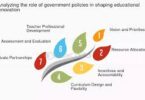
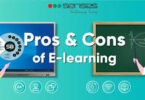
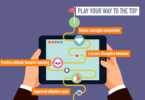



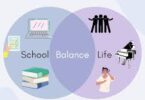
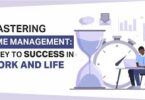
Leave a Comment